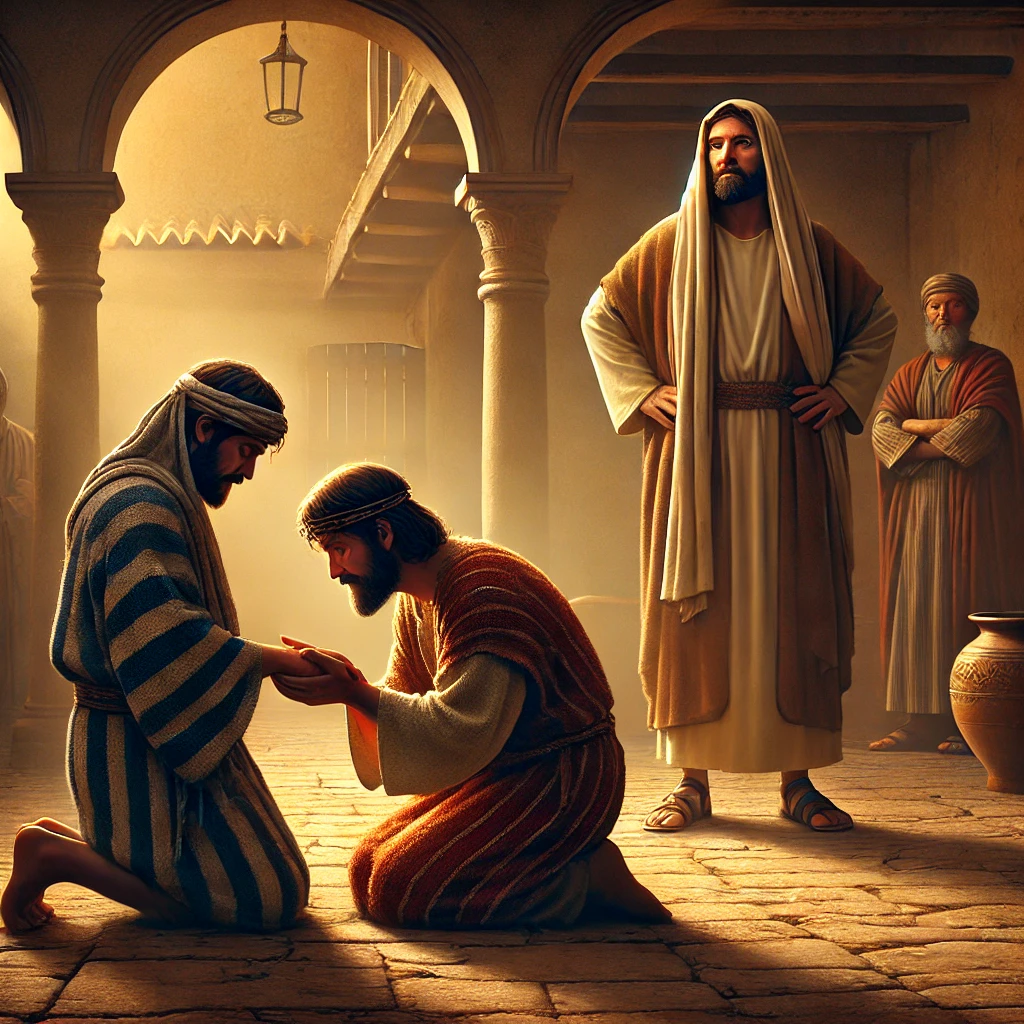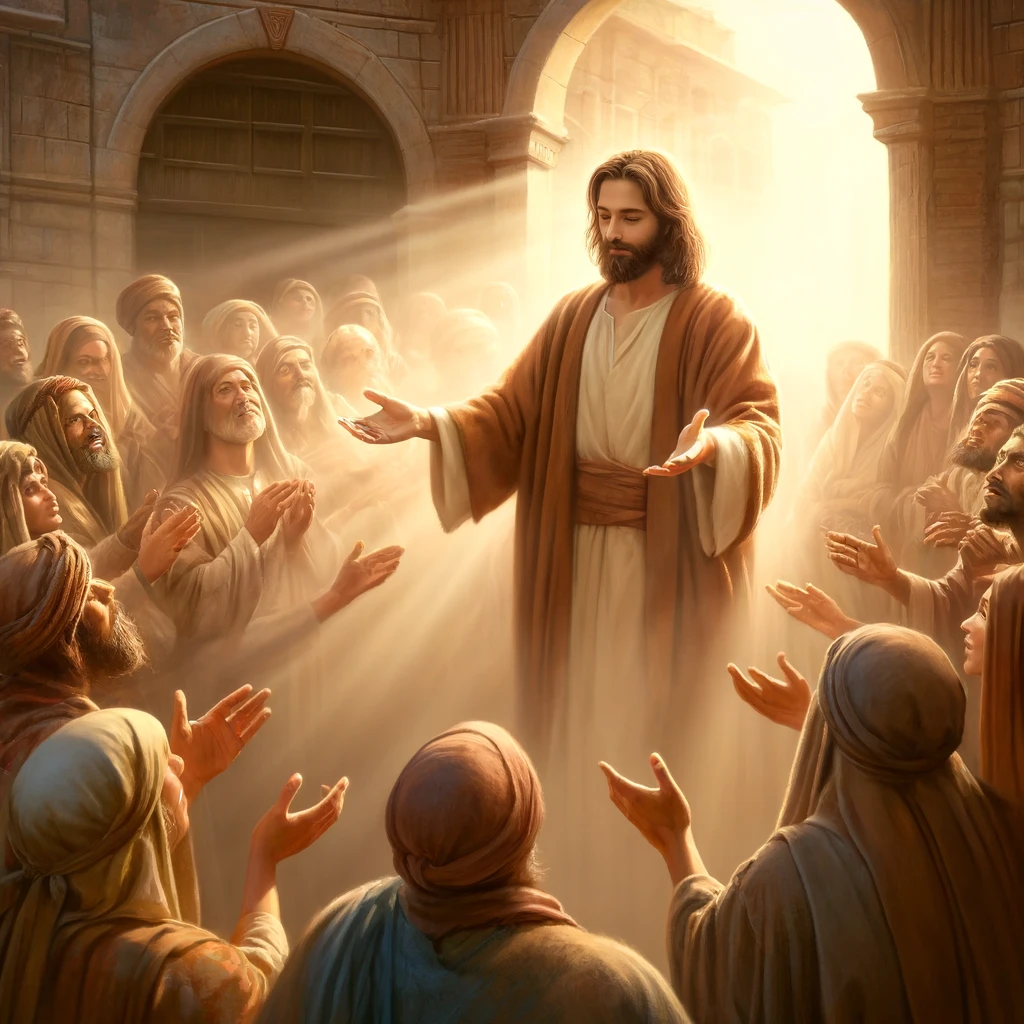When we think about the teachings of Jesus, forgiveness often comes to mind. It’s woven throughout His ministry, from parables to personal encounters, and even in His final moments on the cross. For me, reflecting on Jesus’ teachings about forgiveness feels both inspiring and, honestly, a little challenging. Forgiving others—especially when it’s hard—is one of those practices that can transform our hearts and draw us closer to God. But it’s also a process that often goes against our natural instincts.
I think about the times I’ve held onto grudges or let bitterness creep into my heart, and I realize just how powerful forgiveness can be. Jesus not only taught about it, but He also showed us exactly what it looks like to forgive—even when it’s painful. His example reminds us that forgiveness isn’t about excusing someone’s behavior; it’s about finding freedom in God’s grace. As we dive into the Gospels, let’s take a closer look at what Jesus had to say about forgiveness and how we can start applying these lessons to our own lives.
The Power of Forgiveness in the Lord’s Prayer
One of the first places we see Jesus teaching about forgiveness is in the Lord’s Prayer, a prayer that has become central to the Christian faith. When Jesus taught His disciples how to pray, He didn’t just offer a list of requests for blessings or protection—He included a call to forgiveness. In Matthew 6:12, we hear the words, “And forgive us our debts, as we also have forgiven our debtors.” It’s a short line, but it carries a powerful reminder: forgiveness is something we both receive and extend.
“Forgive Us Our Debts” – Recognizing Our Need for Forgiveness
When Jesus tells us to pray, “Forgive us our debts,” He’s inviting us to acknowledge our own need for forgiveness. It’s a reminder that we all fall short in some way and that we need God’s mercy to start fresh each day. This line of the prayer reminds me that I don’t have to be perfect—I just need to be humble enough to come to God with my mistakes. Jesus taught us to seek God’s forgiveness, not because we deserve it, but because of His unfailing love and grace.
“As We Forgive Our Debtors” – The Call to Forgive Others
The second part of that line is where it gets a bit more challenging: “as we also have forgiven our debtors.” Jesus wasn’t just teaching us to seek forgiveness; He was calling us to extend it to others. This part of the prayer reminds me that forgiveness isn’t just a private experience—it’s meant to flow outward. Jesus seems to be saying that our willingness to forgive others is deeply connected to our experience of God’s forgiveness. It’s as if He’s asking, “How can you fully receive grace if you’re not willing to give it?” That’s a hard question, but it’s one that’s helped me let go of past hurts and choose grace, even when it’s tough.
Forgiveness as an Ongoing Spiritual Practice
Forgiveness isn’t something we do once and then move on; it’s an ongoing practice, something we’re continually invited to work on. Every time I say the Lord’s Prayer, I’m reminded to bring my hurts and frustrations before God and ask for His help in forgiving others. Jesus didn’t just want us to repeat these words without thought—He wanted them to be a daily reminder of the freedom that comes with forgiveness. When we pray for forgiveness and commit to forgiving others, we’re opening our hearts to God’s transforming power, letting Him soften the hardened places in our lives.
Parable of the Unforgiving Servant: Forgiveness Without Limits

In Matthew 18:21-35, Jesus shares a parable that truly captures the essence of boundless forgiveness. It starts with Peter asking Jesus a question that many of us might ask ourselves: “Lord, how many times shall I forgive my brother or sister who sins against me? Up to seven times?” Peter probably thought he was being generous by suggesting seven, but Jesus’ response goes beyond anything he—or we—might expect. Jesus replies, “I tell you, not seven times, but seventy times seven.” With this, He opens up the idea that forgiveness should have no limits.
Peter’s Question – How Often Should We Forgive?
Peter’s question reflects something so relatable. Forgiving someone once is hard enough, and forgiving them multiple times can feel impossible. Peter’s question shows that even the disciples struggled with the idea of repeated forgiveness. Jesus’ response, however, suggests that we’re called to forgive as often as it’s needed. For me, this is a humbling reminder. It means that God’s grace for us is limitless—and He invites us to extend that same grace to others.
The Unforgiving Servant’s Lesson – Consequences of Unforgiveness
In the parable, Jesus tells the story of a servant who was forgiven an enormous debt by his king, only to turn around and refuse to forgive a small debt owed to him by a fellow servant. When the king hears about this, he’s furious, reinstating the original debt because the servant was unwilling to show the same mercy he’d received. This parable hits home—it reveals that when we refuse to forgive, we’re missing out on the true depth of God’s grace. The Unforgiving Servant is a reflection of how easy it can be to accept forgiveness for ourselves but struggle to offer it to others.
Forgiveness as a Reflection of God’s Boundless Mercy
Jesus uses this parable to emphasize that forgiveness isn’t just a one-time act; it’s a continuous reflection of God’s own mercy. Every time we choose to forgive, we’re mirroring God’s heart and showing others the depth of His love. It’s a beautiful, albeit challenging, way to live out our faith. This parable reminds me that God’s mercy doesn’t run dry, and neither should ours. Forgiveness may feel difficult, but through Jesus’ teachings, we see that it is essential for a life of grace and freedom.
“Forgive Them, For They Know Not What They Do”: Jesus’ Example on the Cross
One of the most profound moments of forgiveness in the Gospels is found in Jesus’ own words on the cross. In Luke 23:34, as He was being crucified, Jesus prayed, “Father, forgive them, for they do not know what they are doing.” Even in His most painful, unjust moments, Jesus chose forgiveness. This powerful act shows us the heart of God’s love—a love that forgives even in the face of betrayal, cruelty, and misunderstanding.
A Prayer of Compassion Amidst Suffering
When I reflect on Jesus’ prayer from the cross, I’m struck by His compassion, even in the midst of unimaginable pain. Here was Jesus, innocent and suffering, yet He chose to pray for His persecutors. It’s a reminder that forgiveness isn’t just for when it’s easy or convenient—it’s a calling that stretches into the hardest situations. Jesus showed us that true forgiveness requires looking beyond our own hurt and seeing others through a lens of compassion.
Forgiveness in the Face of Betrayal and Injustice
Jesus’ prayer on the cross challenges us to forgive, even when we feel wronged or misunderstood. It’s tempting to hold onto resentment when we’ve been hurt, but Jesus’ example reminds us that forgiveness is about setting our hearts free from bitterness. He didn’t wait for an apology or acknowledgment of guilt; He simply forgave, trusting God’s greater plan. This lesson speaks to me because it shows that forgiveness is a powerful act of faith, trusting that God sees and will ultimately bring justice.
What We Learn from Jesus’ Forgiveness on the Cross
Jesus’ forgiveness on the cross teaches us that forgiveness is not about weakness but about strength and love. By choosing to forgive, we are choosing to release the weight of resentment and allow God’s peace to fill our hearts. Jesus’ example calls us to forgive not only in the big moments but also in our daily lives. Each time we forgive, we’re reflecting the love and grace that Jesus demonstrated on the cross—a love that forgives without limits.
Forgive as We Have Been Forgiven: The Parable of the Prodigal Son

The Parable of the Prodigal Son, found in Luke 15:11-32, is one of the most well-known stories of forgiveness in the Bible. In this parable, a father forgives his son who had left home, squandered his inheritance, and returned with nothing but shame. The father doesn’t hesitate to welcome him back with open arms, showing us a beautiful picture of unconditional forgiveness and grace.
The Father’s Unconditional Forgiveness
The father in the story doesn’t wait for his son to earn forgiveness; he simply runs to embrace him. This unconditional forgiveness is a powerful illustration of God’s love for us. When I think about this, it’s a reminder that God doesn’t hold grudges or demand perfection before welcoming us back. Instead, He offers us forgiveness freely, and this story encourages us to forgive others with the same open-hearted grace.
The Prodigal Son’s Repentance – Returning with Humility
The son’s journey back to his father is marked by humility. He returns with a repentant heart, willing to accept any consequences, only to find that his father’s love is greater than his mistakes. This part of the story shows us that forgiveness is not only about letting go of others’ wrongs but also about allowing ourselves to come before God, admitting our own failings, and accepting His grace. Just as the son found peace and restoration, we too can find freedom when we choose to forgive and seek forgiveness.
Learning to Forgive and Welcome Others
The father’s forgiveness toward his son invites us to do the same for those who have wronged us. The joy and reconciliation in the story are a reminder that forgiveness restores relationships and brings healing. It’s a powerful call to be people who forgive readily and celebrate the return of others. In my own life, this story encourages me to be gracious and to let go of past hurts, trusting that God’s love can heal any rift.
“Seventy Times Seven”: Forgiveness as an Ongoing Process
In Matthew 18:22, Jesus gives us a bold challenge on forgiveness when Peter asks how often he should forgive someone who wrongs him. Jesus replies, “I tell you, not seven times, but seventy-seven times.” This response may seem extreme, but Jesus is showing that forgiveness isn’t something we measure or limit—it’s a continuous act of grace. This teaching reminds me that forgiveness is an ongoing process, one we are called to live out every day.
Beyond Counting – Forgiveness as a Heart Attitude
When Jesus said “seventy times seven,” He was pointing to an attitude of the heart rather than a literal number. True forgiveness doesn’t keep a tally; instead, it cultivates a spirit of compassion and openness. For me, this is a reminder that forgiveness is about letting go repeatedly, as often as needed, to keep our hearts free from bitterness. Jesus invites us to approach forgiveness as a way of life, not a one-time obligation.
Letting Go of Resentment and Grudges
Holding onto resentment only hurts us in the end. By telling us to forgive “seventy times seven,” Jesus is teaching us the freedom that comes from letting go of grudges. In my experience, forgiveness isn’t always immediate—it can take time, prayer, and a lot of patience. But each time I choose to forgive, I find that the weight of resentment lightens. Jesus knew that forgiveness would liberate us, helping us to live with a lighter heart and a more joyful spirit.
Embracing Forgiveness as a Continuous Journey
Jesus’ teaching here encourages us to see forgiveness as a journey rather than a destination. We may need to forgive the same person or situation multiple times, especially if the hurt is deep. But through this process, we grow in grace and compassion. Each act of forgiveness brings us closer to the heart of God, who forgives us without limit. This journey of forgiveness, while challenging, is one that leads to peace, healing, and a deeper connection with God.
Forgiving Others to Receive Forgiveness: The Sermon on the Mount

In the Sermon on the Mount, Jesus shares one of the most challenging principles of forgiveness: “For if you forgive other people when they sin against you, your heavenly Father will also forgive you. But if you do not forgive others their sins, your Father will not forgive your sins” (Matthew 6:14-15). This teaching underscores the importance of forgiving others to fully receive God’s forgiveness, creating a reciprocal relationship between how we forgive and how we are forgiven.
The Call to Forgive as We’ve Been Forgiven
Jesus’ words here remind us that forgiveness is not optional—it’s essential. If we want to experience the fullness of God’s grace, we need to extend that grace to others. In my own life, I’ve found that forgiving others helps me to feel closer to God, allowing His love to flow through me more freely. Jesus is teaching us that our hearts must remain open and humble, willing to forgive as we’ve been forgiven.
Forgiveness and Freedom from Bitterness
Choosing to forgive not only honors God but also frees us from bitterness and resentment. Holding onto anger blocks us from experiencing the peace and joy God intends for us. Jesus understood this, which is why He placed such emphasis on the importance of forgiveness. When we forgive, we’re letting go of the pain that keeps us stuck, and we’re inviting God’s healing into our lives. This freedom is one of the greatest gifts of forgiveness.
Releasing Judgment to Embrace Grace
Through this teaching, Jesus is inviting us to let go of judgment and embrace a life of grace. We’re called to see others through the lens of compassion, recognizing that we all fall short and need God’s mercy. Forgiving others is a way of releasing them from judgment and entrusting them to God. This practice allows us to live with open hands, ready to receive and share God’s love. When we choose to forgive, we’re embodying the very grace that Jesus has shown us.
Practical Ways to Apply Jesus’ Teachings on Forgiveness Today
Understanding Jesus’ teachings on forgiveness is powerful, but living them out can be challenging. Forgiveness is often a journey that takes practice, patience, and intentionality. Here are some practical ways we can apply Jesus’ lessons on forgiveness in our daily lives, helping us to cultivate a heart of grace.
Daily Acts of Letting Go of Grudges
Forgiveness isn’t always about one grand gesture; often, it’s in the small, everyday choices we make to let go of resentment. I’ve found that practicing forgiveness daily—by refusing to dwell on past hurts or letting go of minor annoyances—helps keep my heart open and free. Jesus invites us to forgive repeatedly, “seventy times seven,” and sometimes that means forgiving the same person or situation again and again.
Praying for a Forgiving Heart
One of the most powerful ways to nurture forgiveness is through prayer. When I struggle to forgive, I ask God to soften my heart and help me see the person through His eyes. Praying for those who’ve wronged us isn’t easy, but it’s transformative. Jesus prayed for those who crucified Him, modeling a heart of compassion that we’re called to emulate. When we pray for others, it opens us to God’s healing, helping us move forward with grace.
Practicing Empathy and Compassion in Relationships
Forgiveness often becomes easier when we put ourselves in someone else’s shoes. Jesus frequently modeled empathy, understanding the weaknesses and struggles of those around Him. Practicing empathy can help us to forgive by reminding us that everyone has their own burdens and imperfections. By choosing compassion, we’re following Jesus’ example and creating stronger, more loving relationships.
Conclusion: Embracing a Life of Forgiveness as Jesus Taught
As we’ve explored, Jesus’ teachings on forgiveness are both profound and practical, challenging us to let go of hurt, extend grace, and embrace a life of compassion. Each lesson He taught—from the parable of the Prodigal Son to His prayer on the cross—points us toward a life of freedom that comes from forgiveness. Jesus knew that forgiveness is as much for us as it is for others; it’s a pathway to healing, peace, and deeper connection with God.
When we choose to forgive, we’re stepping into the heart of Jesus’ teachings, embodying the love and mercy He showed us. This journey may not always be easy, but it’s one that brings us closer to God and aligns us with His purpose. Let’s remember that forgiveness is a daily choice, a continuous journey, and a reflection of the grace we receive from God. May we be inspired by Jesus’ example and strive to live lives that radiate His love and forgiveness to everyone around us.
Related Reading
If you enjoyed this article and would like to explore more on Jesus’ teachings about humility and love, consider reading Jesus Washes His Disciples’ Feet: A Lesson in Humility and Service. This story provides valuable insights into Jesus’ example of servant leadership and what it means to love others with a humble heart.
Additional Resources
For a deeper exploration of Jesus’ teachings on forgiveness, check out Bible Gateway for comprehensive Bible passages and commentaries. Additionally, Bible Study Tools offers resources for understanding the historical and spiritual context of forgiveness in the Bible.



